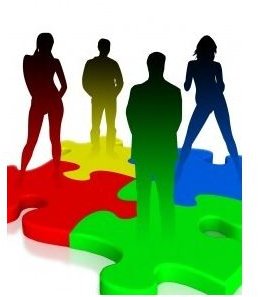Understanding Why is Diversity Important in the Workplace? - Part One
Can You Identify Both Kinds of Diversity?
You know the answer to this question, but you probably haven’t given it much thought before. In any given workplace, jobs are open
to people regardless of their race, religion, ethnicity, sex, age, gender, political orientation, sexual orientation, or any other societal category. The workforce comprises so many different kinds of people, right?
Diversity falls into two categories—primary and secondary. Primary diversity refers to characteristics we are born with that will never change—skin color, ancestry, and so forth. Secondary diversity identifies adjustable qualities: Your socioeconomic culture is affected by how much money you make or whether you continue to seek educational opportunities. Your religious beliefs can evolve, and your lifestyle choices or marital status might well change over the years.
You know it’s important to treat all people fairly. But are you wondering why is diversity important in the workplace? It has much to offer!
First, Embrace It
Before you can understand why diversity is important in the workplace, you must feel comfortable with it. You are the manager who will lead the way by encouraging a corporate climate in which employees feel free to talk about their differences. That doesn’t mean that someone who has only one hand should have to answer thoughtless questions from other employees—although, in fact, he probably won’t mind discussing his disability occasionally.
But recognizing diversity rather than pretending it doesn’t exist creates a much better climate. It’s better to talk freely about our differences. By openly discussing them, people have the chance to learn about other cultures, which often erases misconceptions or lapses in knowledge that they were afraid to admit.
The Obvious Benefit: Diverse Employees Serving Diverse Clients
Assembling a diverse pool of employees facilitates the corporate goal of servicing all kinds of clients. Managers who realize that the concerns of their customers often stem from cultural diversity make it a point to hire employees who will provide a well-rounded complement of services. Sometimes it’s true that a customer’s needs are based at least in part on his differentness; by acknowledging that, we can improve the level of satisfaction he walks away with. Such service can only result in increased referrals.
Accepting Change, Loyalty, & Resourcefulness
But diversity offers additional advantages. Introducing change is easier when you’re working with a diverse group of employees. When confronted by change, some people adapt more easily than others—depending on what the change is. People who own some kind of diversity—either primary or secondary—have spent their lives overcoming challenges. They will bring to work those same qualities. They are less likely to make assumptions. Those who surmount change with ease will help coworkers who hesitate.
People who make it over the hurdles of diversity learn how to form better bonds—not just with their families but with their coworkers. And helping them to accept one another’s differences ensures each person that he is as valued as the next. This inevitably extrapolates to stronger corporate loyalty. Diversity also generates resourcefulness and tolerance.
Expanded Knowledge Pool
Are you still wondering why is diversity important in the workplace? Consider that a diverse group of employees broadens your company’s knowledge pool. Just because an employee does not exhibit diversity at work does not mean he is not exposed to it in his household. You might be surprised to find out who knows sign language, or who knows CPR, or who can speak Mandarin Chinese. Each person has something besides his basic skill set that contributes to his work performance. Harness the advantages of those differences, because they add up to a strong corporate culture that will attract customers.
Celebrate Diversity!

Encourage openness about diversity in your company in several ways. Put all types of holidays on the calendar or advertise them in the company newsletter. Have one of those luncheons to which everybody brings a covered dish—but ask them to bring something that reflects their background. And don’t limit someone by saying, for example, that you expect him to bring an Italian dish; let each person reflect on his own individuality. Make up a quiz to play on a Fun Friday in which coworkers must guess things about one another—who has lived in Alaska, who can speak that foreign language, who majored (or minored) in music in college. (Get people’s permission before you put their private lives in a quiz!)
We Are All Alike
This is probably a good time to remind you, no matter how vigorously your corporate culture embraces diversity, to develop a speech and keep it handy for times when an employee takes it too far. If you manage employees at a large company, you can even put together a diversity class for those who cross the line. The first time someone crosses the diversity line, approach it as a mistake from which he can learn.
There are many movies about diversity, but probably none so telling nor timely as 2004’s Academy Award-winning film, “Crash”—a title that refers not just to a car accident but to the way people go through life crashing into one another, disrespecting diversity and unmindful of others’ feelings. If you haven’t seen it, rent it now. The movie has as many layers as an onion, just like people do. But, just like onions, people are all really pretty much alike.
Image Credits:
